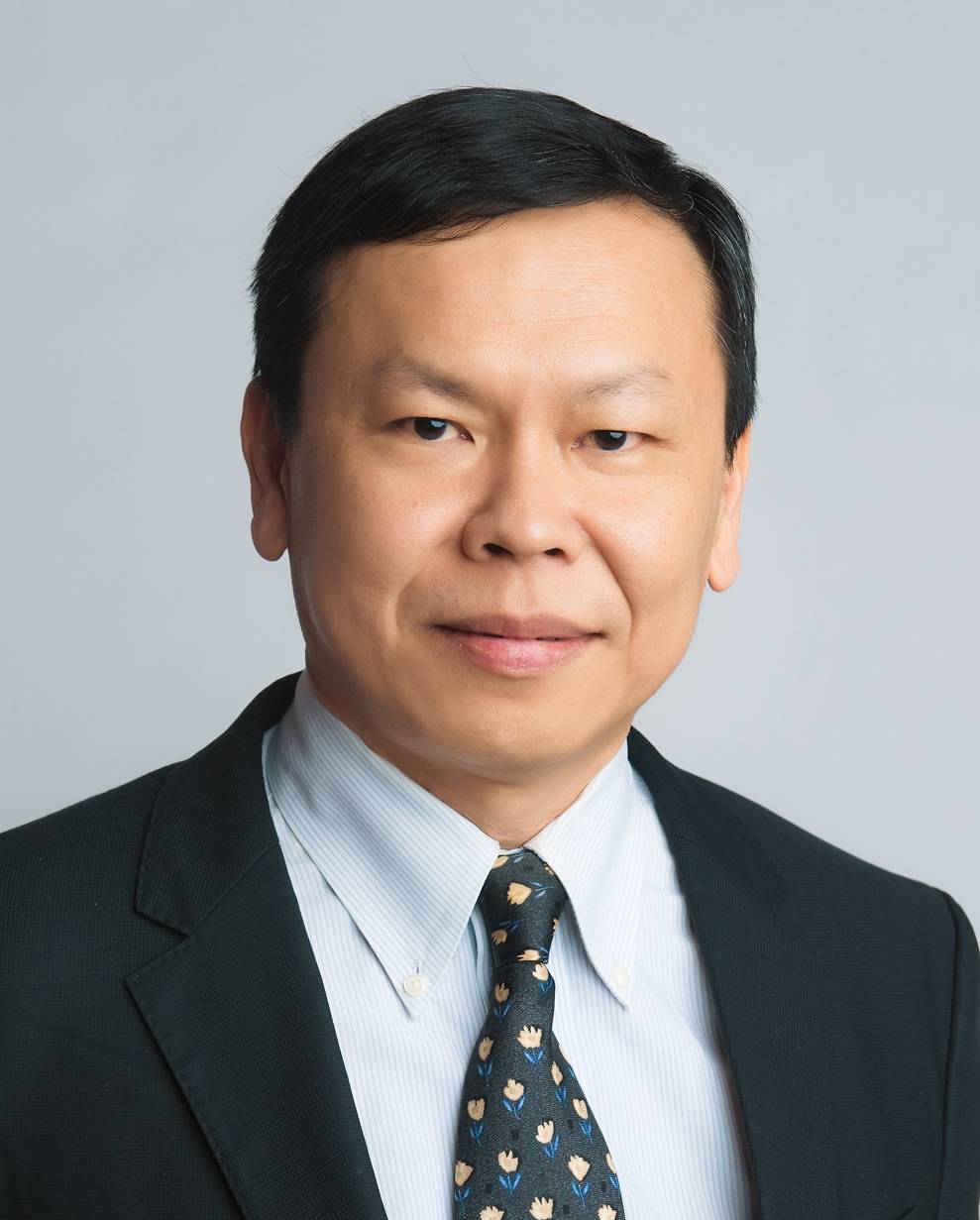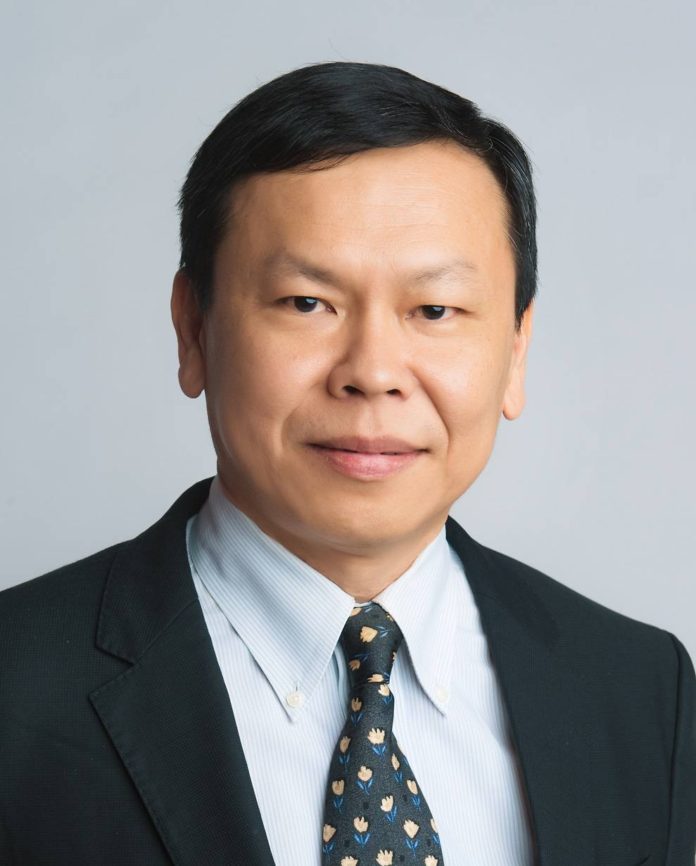SINGAPORE: “The fittest will survive.”
That was the response from TPG Telecom’s general manager Richard Tan, when asked if Singapore’s fourth telco would be able to withstand the intense competition from the mobile virtual network operators (MVNOs) that have sprung up since it won the license bid back in December 2016.
Mr Tan, in an exclusive interview with CNA on Wednesday (Jul 3), credited its entry into Singapore’s previously insular telecom sector as the reason for the ongoing market shake-up and opened the door for the re-appearance of MVNOs since the ill-fated foray by Virgin Mobile back in 2001.
“For the longest time, there wasn’t (any) MVNOs. Why? The reason is because the mobile network operators (MNOs) never provided the conditions to support the entry of an MVNO,” he explained. “Because of the fourth (telco) licence, the door was open for MVNOs to come in because the MNOs realise that the rules of the game, to some extent, for the market has changed.”
To date, there are seven virtual telcos – Circles.Life, MyRepublic, Zero Mobile, Zero 1, Grid Mobile, VivoBee and redOne – operating in the country. These companies lease existing network capacity from the three incumbent telcos Singtel, StarHub and M1 to offer mobile services to consumers here.

Mr Richard Tan, who oversees TPG Telecom’s Singapore operations, said he first joined the Australia-headquartered company late last year and initially as a consultant. (Photo: TPG)
The industry veteran, who has had stints at Singtel and Indonesia’s Telkomsel, said the rise in the number of MVNOs is “unsurprising” as the incumbent telcos attempt to shore up market share ahead of TPG’s commercial launch. This, he revealed, will happen in a “couple more months”.
By supporting these virtual telcos, should any of them do well, the success in terms of subscriber numbers will be reflected in the partner telcos’ overall performance results, he added.
SIMPLICITY IS KEY
However, despite the growing competition, Mr Tan remained confident TPG, which is headquartered in Australia, will be competitive here as it continues with its network deployment and fine-tunes its mobile offerings ahead of the official launch.
Detailing its Singapore launch plans for the first time, the 55-year-old who oversees the telco’s Singapore operations shared that the entirely new mobile network infrastructure it is investing in will stand it in good stead.
“Operators who have their own infrastructure will have a deep intrinsic advantage,” Mr Tan said, adding they are not beholden to the terms and pricing imposed by the incumbent telcos.
TPG is also able to better develop service offerings that suit the local market, he added, citing its offer of free unlimited data roaming in Malaysia and Indonesia later this month to its nearly 200,000 mobile users here who have signed up for its year-long trial.
It decided on this as a point of differentiation as its research showed that Singaporeans travel quite a lot and particularly to the two neighbouring countries, Mr Tan said.
It is also offering unlimited calls to Singapore mobile numbers, even if the customer is in Malaysia or Indonesia.
This means no additional costs and anxiety over roaming fees for the consumer, he elaborated.
TPG is also working on a digital wallet. Customers can pre-pay and top up the wallet ahead of time, and draw down on the stored amount for things like calls and SMSes, the executive said. The top-ups can be done via its online portal, and not a dedicated app like what other providers are doing, as TPG doesn’t see the need to further clutter the user experience, he added.
These features, and the offer of only one basic mobile plan are all part of its overall aim of providing “simplicity” to its customers, Mr Tan said.
This “lean” cost structure extends to how it intends to attract customers too.
Mr Tan said the registration and delivery of TPG SIM cards can be done through its online portal, which would cut down significantly on the need to set up brick-and-mortar stores all over Singapore.
“There will be some retail presence, but we will do it only for clear reasons,” he said.
For the most part, it will be working with retail partners like Courts and Challenger to do the customer onboarding and mobile activation process. This, he said, also favours these retailers as they can “upsell” other products and services to TPG customers during this process.
EYE ON THE ELDERLY
Turning his attention to a specific segment of the Singapore demographic – the elderly – Mr Tan said the company is paying special attention to their needs as they tend to be “underserved” and not equipped to handle today’s smartphones.
As such, it has partnered an unnamed phone manufacturer to offer devices that are more senior-friendly, the general manager said.
One example is how the phone will have a call button at the side of the device that, when pushed, will cycle through a preconfigured set of numbers to reach the user’s loved ones. This would be helpful for those who may have dementia and get lost when out in public, he explained.
The phone will be come in touchscreen only and keypad variants, and will not use the two most popular operating systems (OS) in the market today. Rather it will be an OS that is “popular in India and the United States”, the executive added.
It is also working with Mediacorp to make sure senior citizens can access local television and radio content via Toggle and MeRadio – without taxing their monthly data limits. This would be particularly helpful for those who may not have a digital TV, following the cutover from analogue signals at the end of 2018.
“Imagine streaming on Toggle for the whole day, it would be quite taxing on our networks. But I thought this was important,” Mr Tan said.
The company intends to announce this officially at an event slated for later this month.
This is not the first time TPG has stated its intention to cater to the elderly in Singapore.
Last March, it said will be targeting those 65 and above when it launches its mobile service here and they will get a SIM card, 3GB of monthly data and unlimited calls to local mobiles at no charge for the first 24 months.
TEETHING PROBLEMS
It’s not all plain sailing for Singapore’s fourth telco though.
TPG launched its free mobile service trial last December and said then that mobile calls require a voice over LTE (VoLTE)-capable handset for it to work. These devices include Huawei’s P20 and Mate 20 devices as well as Samsung’s Galaxy S9 and S9+, it added.
However, Mr Tan said while VoLTE has been around for some time and most phones support the technology, it does require adding TPG’s parameters to the device’s firmware settings. This is what device makers like Samsung, Huawei and Oppo have been doing, he pointed out.
Apple, however, has refused to add the telco’s settings to its carrier settings, he revealed.
“We have explained to them that we are a SIM-only operator and are not currently bundling phones with our service trial, and (Apple’s) decision inconveniences customers who may have signed up for a TPG service,” the executive said.
“We have also sought (regulator) IMDA’s help … but Apple has refused to budge from their position.”
This means that for those who are using TPG’s trial service, data and SMS services work but not voice calls. Given that Apple has “something like north of 40 per cent market share in Singapore”, many are not able to enjoy its services to the full, he said.
“It is disappointing that Apple is abusing their position to the prejudice of consumers,” Mr Tan said.
CNA has asked Apple for its comments on the matter.
Regardless of the bumps on the road to actual launch, Mr Tan said it intends to focus on delivering on its promises and to “excite customers” with its offerings. There are no fixed market share targets to speak off currently. The “market share will be whatever it is”, as customers buy into the experience, he said.
“I always say one thing: Customers are very smart. Customers will know who is serving them best and who is giving them the best value,” Mr Tan said.
“Over the long term, that’s where you have to build that customer loyalty … and the affinity they feel towards that operator.”





